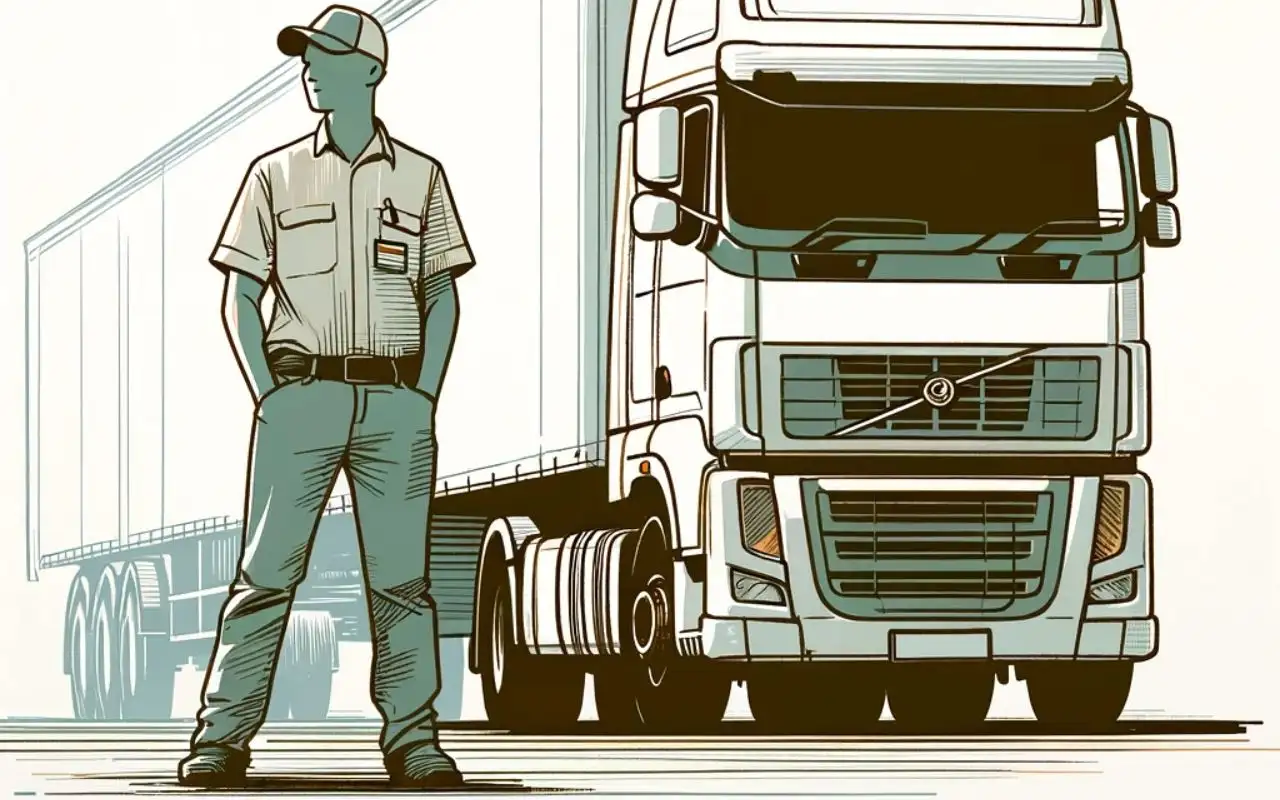A truck driver is a professional responsible for operating and driving trucks to transport goods or materials from one location to another.
These individuals play a crucial role in the logistics and transportation industry, ensuring the timely and safe delivery of cargo.
Truck drivers are skilled in manoeuvring large vehicles, adhering to traffic regulations, and maintaining the condition of their trucks.
They may work for trucking companies, delivery services, or as independent contractors.
The job requires physical endurance, as drivers often spend long hours on the road, and the ability to handle various road and weather conditions.
How Much Does A Truck Driver Earn in South Africa
The average salary for a Heavy Truck Driver in South Africa is R110,000 per year, with a median salary of R110,000. The salary range varies from R9,000 to R184,000, including bonuses, profit-sharing, and commission.
The pay structure also depends on the level of experience. Entry-level drivers with less than 1 year of experience can expect an average total compensation of R36, while early career drivers with 1-4 years earn 50.
Mid-career drivers with 5-9 years of experience receive an average total compensation of R60, and experienced drivers with 10-19 years earn R70. In their later career (20 years and higher), Heavy Truck Drivers earn an average total compensation of R50.
Factors Affecting Truck Driver Salary in South Africa
Experience
The years you’ve spent behind the wheel directly impact your earning potential. Seasoned drivers with proven safety records and knowledge of various routes command higher salaries.
Type of Cargo
Hauling hazardous materials, oversized loads, or specialized goods generally comes with a premium due to the increased responsibility and potential risks involved.
Distance & Routes
Long-haul journeys across provinces often pay more than shorter regional trips. Additionally, navigating demanding terrains or routes with stricter regulations can influence compensation.
Truck & Equipment
Operating newer, well-maintained vehicles equipped with advanced safety features often translates to higher pay compared to older models.
Qualifications & Licenses
Possessing additional endorsements for specific vehicle classes or hazardous material certifications enhances your value and earning potential.
Employer & Industry
Salaries can vary across trucking companies and industries. Larger firms or specialized sectors like mining or energy might offer more competitive pay.
Union Membership
Being part of a truck driver union provides access to collective bargaining agreements that can secure better wages, benefits, and working conditions.
Negotiation Skills
Your ability to effectively negotiate your salary and benefits package can significantly impact your income, especially when dealing with smaller companies.
Performance & Safety
Maintaining a clean driving record, exceeding delivery targets, and demonstrating safe driving practices can lead to bonuses, incentives, and higher base salaries.
Supply & Demand
In areas with a shortage of qualified truck drivers, employers might offer more attractive salaries and benefits to attract and retain talent.
Education and Qualifications for a Truck Driver in South Africa
Mandatory Requirements:
Learner’s License: Obtain a learner’s license for motor vehicles with a code indicating your desired truck category (e.g., C, EC, etc.).
Professional Driving Permit (PrDP): Successfully completed a PrDP course accredited by the Department of Transport (DoT). This involves theory and practical training specific to your chosen truck category.
Driver’s License: Pass a driving test with your chosen truck category endorsement on your PrDP.
Medical Certificate: Obtain a valid medical certificate confirming your physical and mental fitness for truck driving.
Professional Driving Qualifications (PDQs): Complete PDQs specific to your desired specialization (e.g., hazardous goods, abnormal loads).
Additional Qualifications (Enhance Earning Potential):
Higher Grade Driver’s License: Pursue endorsements for higher truck categories (e.g., Code EB for articulated vehicles) to expand job opportunities.
Dangerous Goods Training: Obtain a certificate for handling hazardous materials if you plan to transport them.
Forklift or Crane Operator Licenses: Add these skills to your resume for increased versatility and potential for higher pay in specific industries.
First Aid & Firefighting Training: Enhance your safety qualifications and employability with these emergency response certifications.
Logistics or Transport Management Diploma: Consider further education for career advancement, particularly in management or supervisory roles.

